
Index
Applications & Benefits of GAO’s RFID, BLE, IoT & Drones for Pipeline Transportation
GAO Helps Customers Comply with Standards, Mandates & Regulations of Pipeline Transportation
GAO Software Provides Easy Integration with API
Case Studies of RFID, IoT & Drone Applications
GAO RFID Systems & Hardware for Pipeline Transportation
Overview
The pipeline transportation industry is a vital sector responsible for the movement of various substances, primarily liquids and gases, through an extensive network of pipelines. These pipelines are constructed from materials like steel, plastic, or concrete and can span vast distances, both on land and underwater. The industry serves as a cornerstone of the energy sector, enabling the efficient transport of resources such as crude oil, natural gas, refined petroleum products, chemicals, and even water. It plays a pivotal role in connecting production sites with refineries, distribution centers, and end-users, significantly impacting the global economy by influencing energy prices and supply chain dynamics. While pipelines are known for their efficiency and relatively high safety standards compared to other transportation modes, they also face regulatory and environmental considerations, necessitating stringent oversight and continuous technological advancements to ensure safe and reliable operations.
The pipeline transportation industry’s infrastructure comprises an intricate network of pumps, valves, and control systems that manage the flow of substances. It is heavily regulated by government authorities to safeguard public safety, environmental protection, and the industry’s integrity. Over the years, technological innovations have driven improvements in pipeline materials, inspection techniques, and monitoring systems, enhancing the industry’s overall efficiency and safety. Despite challenges related to environmental concerns and occasional incidents, the pipeline transportation industry remains a critical element in the global energy landscape, contributing significantly to the world’s energy supply chain and infrastructure.
GAO’s RFID, BLE, IoT, and drone technologies have helped its customers in the Pipeline Transportation Industry to improve their work processes, their operations and productivity by better management of their staff, materials and operational equipment such as pipelines (constructed from materials like steel, plastic, or concrete), pumps, compressors, valves, control systems, meters, inspection tools (such as pigging devices), cathodic protection systems, leak detection systems, pressure vessels, storage tanks, and specialized vehicles for maintenance and construction purposes.
Ranked as one of the top 10 global RFID suppliers, GAO RFID Inc. is based in New York City, U.S. and Toronto, Canada. GAO offers a comprehensive selection of UHF, HF (including NFC) and LF RFID (radio frequency identification) readers and tags, BLE (Low Energy Bluetooth) gateways and beacons, and various RFID and BLE systems such as people tracking, asset tracking, access control, parking control, fleet management, WIP (work in progress), traceability. RFID and BLE products and systems, as well as its IoT and drone technologies, have been successfully deployed for Pipeline Transportation. Its sister company, GAO Tek Inc. https://gaotek.com, is a leading supplier of industrial or commercial testers and analyzers, drones, and network products.
The targeted markets of both GAO RFID Inc. and GAO Tek Inc. are North America, particularly the U.S., Canada, Mexico, and Europe. As a result, this website gaorfid.com is offered in English and other major languages of North America and Europe such as Spanish, French, German, Italian, Polish, Ukrainian, Romanian, Russian, Dutch, Turkish, Greek, Hungarian, Swedish, Czech, Portuguese, Serbian, Bulgarian, Croatian, Danish, Finnish, Norwegian, Slovak, Catalan, Lithuanian, Bosnian, Galician, Slovene, Latvian, Estonian, Welsh, Icelandic, and Irish.
Applications & Benefits of GAO’s RFID, BLE, IoT & Drones for Pipeline Transportation

To satisfy its customers, GAO’s RFID or RFID Systems for Pipeline Transportation are offered in 2 versions. One version is that its software is running on a local server that normally is on our client’s premises, and another version runs in the cloud. The cloud server could be GAO’s cloud server, client’s own cloud server or a cloud server from one of the leading cloud server providers such as Amazon Web Services (AWS), Microsoft Azure, Google Cloud, IBM Cloud (formerly SoftLayer), Oracle Cloud, RedHat, Heroku, Digital Ocean, CloudFlare, Linode and Rackspace. The above illustrates GAO system for sub-industry Pipeline Transportation software running on a local server.

The above illustrates GAO system for Pipeline Transportation with its software running in cloud.
GAO’s RFID and BLE technologies, consisting of RFID readers, RFID tags, BLE gateways, BLE beacons, software, cloud services and their systems, have the following applications in the Pipeline Transportation industry:
- Asset Tracking: RFID tags can be attached to various pipeline components, such as valves, pumps, and pipes, allowing for real-time tracking of their location and status within the pipeline network.
- Inventory Management: RFID technology can automate inventory tracking of spare parts and materials, ensuring that essential equipment and supplies are readily available for maintenance and repairs.
- Personnel Safety: RFID badges or tags can be worn by workers to enhance safety. In the event of an emergency, their location can be quickly determined, aiding in rescue and evacuation efforts.
- Security: RFID can be used for access control and monitoring at critical infrastructure sites to prevent unauthorized personnel from accessing sensitive areas.
- Maintenance and Inspections: RFID tags can store maintenance history and inspection data for pipeline components, making it easier to schedule and track routine maintenance tasks.
- Pipeline Integrity: RFID technology is used in “smart pigs,” which are devices that traverse inside pipelines to inspect and monitor for defects or corrosion, helping maintain pipeline integrity.
- Pipeline Pigging: RFID tags on pipeline pigs aid in tracking and monitoring their movement inside the pipeline, ensuring proper cleaning and maintenance.
- Supply Chain Management: RFID can help optimize the supply chain by tracking the movement of materials and equipment from suppliers to pipeline construction sites.
- Emergency Response: In case of a pipeline incident or leak, RFID tags on pipeline valves and emergency equipment can help responders quickly locate and isolate affected areas.
- Data Logging: RFID can assist in recording environmental data, such as temperature, pressure, and flow rates, at various points along the pipeline for analysis and troubleshooting.
- Authentication: RFID can be used to authenticate and verify the origin of materials or components used in pipeline construction and maintenance, reducing the risk of counterfeit or substandard products.
- Pipeline Marking: RFID tags can be embedded in above-ground markers or signage to ensure the accurate marking and identification of pipeline routes and safety warnings.
GAO’s drone technologies find the following applications in the Pipeline Transportation industry:
- Aerial Inspection: Drones equipped with high-resolution cameras and sensors can conduct aerial inspections of pipelines to identify potential leaks, corrosion, or damage.
- Leak Detection: Drones equipped with gas sensors can detect gas leaks along pipeline routes, helping to prevent environmental hazards.
- Surveillance and Security: Drones are employed for monitoring and surveillance of pipeline infrastructure, helping to deter vandalism and unauthorized access.
- Mapping and Surveying: Drones can create detailed topographical maps and surveys of pipeline routes, aiding in planning and maintenance.
- Environmental Monitoring: Drones can assess the environmental impact of pipelines and monitor surrounding ecosystems.
- Maintenance and Repairs: Some drones are designed for maintenance tasks, such as delivering tools or inspecting hard-to-reach areas.
- Emergency Response: Drones can be rapidly deployed to assess damage in the event of accidents or natural disasters, helping to plan a quick response.
- Data Collection: Drones collect data on pipeline conditions, helping operators make informed decisions regarding maintenance and repairs.
- Asset Management: Drones aid in tracking the condition and location of pipeline assets, ensuring they are properly maintained.
- Documentation and Reporting: Drones capture visual and sensor data, which is used for documentation, reporting, and compliance purposes.
- Pipeline Construction: Drones assist in planning and monitoring pipeline construction projects, ensuring they adhere to design specifications.
- Right-of-Way Management: Drones help manage vegetation along pipeline rights-of-way by identifying overgrowth and potential hazards.
- Safety Inspections: Drones can conduct safety inspections of facilities and equipment, ensuring compliance with safety regulations.
- Remote Monitoring: Drones with live video feeds allow operators to remotely monitor pipeline activities and respond to issues in real-time.
- Education and Training: Drones are used in training programs to simulate real-world scenarios and prepare personnel for pipeline inspection and maintenance tasks.
GAO’s IoT technologies, consisting of IoT sensors, sensors networks and systems, find the following applications in the Pipeline Transportation industry:
- Asset Monitoring: IoT sensors can monitor the condition and performance of pipeline assets such as valves, pumps, and compressors in real-time, providing data for predictive maintenance.
- Leak Detection: IoT devices can detect leaks in pipelines by monitoring pressure, flow rates, and temperature changes, helping to prevent environmental damage and improve safety.
- Remote Monitoring: Remote sensors and cameras connected through IoT enable continuous monitoring of pipelines, even in remote or inaccessible locations, enhancing security and maintenance efficiency.
- Environmental Compliance: IoT systems can monitor emissions and ensure compliance with environmental regulations, reducing the industry’s ecological footprint.
- Pipeline Integrity: IoT-enabled tools can assess and monitor the integrity of pipelines, helping to prevent corrosion and structural issues.
- Energy Efficiency: IoT sensors can optimize energy usage by monitoring and controlling equipment like pumps and compressors to reduce energy consumption and operational costs.
- Predictive Analytics: IoT data can be analyzed to predict equipment failures, allowing for proactive maintenance and reducing downtime.
- Security and Tamper Detection: IoT devices enhance security by detecting unauthorized access or tampering along the pipeline route.
- Supply Chain Management: IoT helps track the movement and condition of products in the pipeline, improving inventory management and delivery schedules.
- Emergency Response: In case of incidents, IoT systems can automatically trigger alarms and emergency responses, reducing response times and mitigating damage.
- Regulatory Compliance: IoT data can be used to demonstrate compliance with safety and environmental regulations to regulatory bodies and stakeholders.
- Data Analytics: IoT-generated data can be analyzed for insights into pipeline operations, helping to optimize processes and decision-making.
- Weather Monitoring: IoT sensors can monitor weather conditions along pipeline routes to anticipate weather-related challenges.
- Water Management: For pipelines carrying water resources, IoT can monitor water quality, flow rates, and consumption to ensure efficient distribution.
- Remote Control: IoT allows remote control of critical pipeline infrastructure, enabling operators to adjust settings and respond to changing conditions in real-time.
- Inventory Tracking: IoT can track the movement and storage of materials and products along the pipeline, improving inventory management and preventing theft.
GAO Helps Customers Comply with Standards, Mandates & Regulations of Pipeline Transportation
GAO RFID Inc. has helped many companies in Pipeline Transportation to deploy RFID, BLE, IoT and drone systems and to ensure such deployments complying with the applicable industry standards, mandates and government regulations:
RFID, BLE, IoT, & Drone Standards & Mandates
- ISO 18000-6C
- ISO 14443
- EPCglobal Gen2
- Bluetooth 4.0 (Bluetooth Smart)
- Bluetooth 4.2
- Bluetooth 5.0
- MQTT
- CoAP
- OPC UA
- IEEE 802.15.4
- LoRaWAN
- Zigbee
- Thread
- OPC UA for Devices
- DDS
- OneM2M
- API 1165
- PHMSA
- DOT
- FAA
US. Government Regulations
- Pipeline Safety Regulations
- Natural Gas Pipeline Safety Regulations
- Hazardous Liquid Pipeline Safety Regulations
- Integrity Management Programs for Gas Pipelines
- Integrity Management Programs for Hazardous Liquid Pipelines
- Operator Qualification
- Control Room Management
- Incident and Accident Reporting
- National Pipeline Mapping System
- Safety of Onshore Natural Gas Gathering Lines
- Safety Standards for LNG Facilities
- Damage Prevention Programs
- Emergency Response Plans
- Drug and Alcohol Testing
- Regulations for Transportation of Hazardous
Canadian Government Regulations
- National Energy Board Act
- Canadian Energy Regulator Act
- Canadian Environmental Assessment Act, 2012
- Canadian Environmental Assessment Regulations, 2012
- Transportation of Dangerous Goods Act, 1992
- National Energy Board Onshore Pipeline Regulations
- National Energy Board Processing Plant Regulations
- National Energy Board Cost Recovery Regulations
- National Energy Board Exemption Order
GAO Software Provides Easy Integration with API
GAO’s RFID and BLE software offers a free trial for both the server-based and cloud versions, and offers an API to the important systems in Pipeline Transportation such as:
Personnel Management:
- Workforce scheduling and management
- Safety training and compliance tracking
- Employee performance monitoring
- Emergency response coordination
Equipment Management:
- Maintenance scheduling and tracking
- Equipment condition monitoring
- Predictive maintenance using IoT
- Asset tracking and inventory management
Access Control:
- Security surveillance and monitoring
- Unauthorized access detection
- Gate and entry control
- Biometric authentication for restricted areas
Warehouse Management:
- Storage and inventory tracking
- Materials handling and logistics
- Supply chain optimization
- Automated inventory replenishment
Supply Chain Management:
- Demand forecasting
- Supplier relationship management
- Order processing and tracking
- Transport logistics and route optimization
Other Applications:
- Environmental monitoring and compliance
- Leak detection and prevention
- Energy efficiency and sustainability initiatives
- Regulatory compliance and reporting
- Data analytics for operational insights
- Incident management and emergency response
- Weather monitoring for risk assessment
GAO has enabled its customers to make use of some of the leading software and cloud services in the Pipeline Transportation industry. Below are some of popular software and cloud services in sub-industry Pipeline Transportation:
SAP SuccessFactors, Workday, Oracle HCM Cloud, Microsoft Dynamics 365 Human Resources, IBM Maximo, Infor EAM, AVEVA Asset Performance Management, GE Digital’s Predix Asset Performance Management, IBM Watson IoT, Microsoft Azure IoT, AWS IoT Core, and Google Cloud IoT Core, Honeywell Forge for Industrial, Genetec Security Center, LenelS2 OnGuard, Avigilon Control Center, Infor WMS, Manhattan Associates WMS, SAP Extended Warehouse Management (EWM), Oracle Cloud Supply Chain Management, JDA Software (now Blue Yonder), Kinaxis RapidResponse, IBM Supply Chain Insights, Microsoft Dynamics 365 Supply Chain Management, Oracle SCM Cloud, SAP Integrated Business Planning (IBP), and Infor Nexus, AVEVA Unified Supply Chain, Schneider Electric PipelineManager, Bentley OpenCities Map, GE Digital Pipeline Management, Kongsberg Pipeline Simulator, Siemens Pipeline Operations Simulator, ESRI ArcGIS Pipeline Referencing, IBM Maximo for Oil and Gas, Oracle Cloud Infrastructure, Microsoft Azure for Energy, Amazon Web Services (AWS) for Oil and Gas, Google Cloud Platform (GCP) for Energy, and IBM Cloud for Energy and Utilities.
GAO has worked with some of the leading technology companies in Pipeline Transportation in to provide integrated its RFID, BLE, IoT and drone solutions to customers. Here are some of the technology leaders in sub-industry Pipeline Transportation:
Siemens, Schneider Electric, AVEVA, Honeywell, GE Digital, Kongsberg, Bentley Systems, ESRI, IBM, Oracle, Microsoft, Amazon Web Services (AWS), Google Cloud, and Cisco Systems.
Case Studies of RFID, IoT & Drone Applications
Case Studies of RFID Applications
Below are some RFID application cases in Pipeline Transportation industry.
Specific case studies of RFID applications in the Pipeline Transportation Industry implemented in the USA include the use of RFID for asset tracking and maintenance management by leading pipeline operators like Kinder Morgan, the implementation of RFID technology to monitor and manage pipe sections and inspection data by Colonial Pipeline, and the use of RFID for real-time inventory tracking and supply chain optimization in the oil and gas sector, with examples from companies like Phillips 66 and Chevron. Additionally, there have been instances of RFID technology being applied to improve access control and security measures at critical pipeline facilities across the country.
Case studies of RFID applications in the Pipeline Transportation Industry implemented in Europe include the use of RFID for asset tracking and maintenance management by leading pipeline companies such as Gazprom in Russia, Transneft in Russia, and TAP (Trans Adriatic Pipeline) in Greece and Italy. Additionally, RFID has been utilized for enhancing safety and security in pipeline operations by organizations like TANAP (Trans Anatolian Natural Gas Pipeline) in Turkey and Nord Stream in Germany and Russia. These case studies demonstrate how RFID technology has been employed for improved asset management, operational efficiency, and safety within the European pipeline transportation sector.
Case studies of UHF RFID applications in the Pipeline Transportation Industry implemented in the USA include the use of UHF RFID for tracking and managing pipeline assets and equipment by major pipeline operators like Colonial Pipeline and Kinder Morgan. These companies have implemented UHF RFID systems to enhance inventory management, streamline maintenance processes, and improve asset visibility. Additionally, UHF RFID technology has been employed by various oil and gas companies, such as Chevron and ExxonMobil, to track and trace equipment and materials across their pipeline networks, improving operational efficiency and reducing downtime. These case studies showcase the successful adoption of UHF RFID technology in the USA’s pipeline industry for optimizing asset management and ensuring the integrity of pipeline operations.
Many applications of RFID by GAO can be found here.
Case Studies of IoT Applications
Below are some IoT application cases in Pipeline Transportation industry.
One notable case study of IoT applications in the Pipeline Transportation Industry implemented in the USA is the deployment of IoT sensors by Colonial Pipeline, one of the largest pipeline operators in the country. Colonial Pipeline has integrated IoT technology to enhance the monitoring and management of its extensive pipeline network. IoT sensors are strategically placed along the pipeline to collect real-time data on factors like pressure, temperature, and flow rates. This data is then transmitted to a central control center, where it is analyzed to detect anomalies, identify potential leaks, and optimize pipeline operations. This IoT implementation has improved the efficiency of pipeline maintenance, reduced downtime, and enhanced safety measures, demonstrating the value of IoT in ensuring the integrity and reliability of critical energy infrastructure.
A specific case study of IoT applications in the Pipeline Transportation Industry implemented in Canada was the use of IoT sensors and technology by Enbridge, one of the largest energy infrastructure companies in North America. Enbridge implemented an IoT-based pipeline integrity monitoring system across its extensive network of pipelines in Canada. This system involved the installation of sensors along the pipelines to continuously monitor conditions such as pressure, temperature, and the presence of corrosive substances. Real-time data from these sensors was transmitted to a central control center, allowing Enbridge to proactively identify potential issues, prioritize maintenance activities, and ensure the safety and reliability of its pipeline operations. This IoT implementation aimed to enhance the company’s ability to prevent incidents and improve the overall integrity of its pipeline network.
One notable case study of IoT applications in the Pipeline Transportation Industry implemented in Europe is the deployment by BP of IoT sensors and data analytics for pipeline monitoring in the North Sea. BP utilized a network of sensors placed along its pipelines to collect real-time data on factors such as temperature, pressure, and corrosion levels. This data was then transmitted to a central monitoring system, allowing BP to continuously assess the condition and integrity of its pipeline infrastructure. By implementing IoT technology, BP aimed to improve safety, detect potential issues before they become critical, and optimize maintenance schedules, ultimately enhancing the reliability and efficiency of its pipeline operations in the challenging offshore environment of the North Sea.
Case Studies of Drone Applications
Below are some drone application cases in Pipeline Transportation industry.
The use of drones by companies like Colonial Pipeline for pipeline inspection and monitoring of rights-of-way, enabling them to identify issues more quickly and efficiently. Similarly, Duke Energy implemented drone technology to inspect pipelines and assess vegetation encroachments, enhancing safety and reducing operational costs. Additionally, BP deployed drones for regular inspections of their pipelines and facilities, improving safety measures and overall asset management. These case studies highlight how drones have become valuable tools for enhancing safety, efficiency, and maintenance practices in the US pipeline industry.
GAO RFID Systems & Hardware for Pipeline Transportation
GAO RFID Inc. offers the largest selection of BLE gateways, BLE beacons, RFID readers, tags, antenna, printers, and integrated RFID systems for various industries, including Pipeline Transportation.
BLE (Bluetooth Low Energy)
GAO offers advanced BLE gateways:
as well as versatile beacons with such important functions as temperature, humility, vibration and panic button:
GAO’s BLE technology is suitable for many industries, including Pipeline Transportation.
UHF (Ultra High Frequency) RFID
GAO offers the largest selection of UHF RFID readers for various industries, including Pipeline Transportation:
GAO RFID offers the widest choice of UHF RFID tags, labels, badges, wristbands for various industries, including Pipeline Transportation:
and an array of antennas to address different applications:
HF (High Frequency), NFC (Near Field Communications) and LF (Low Frequency) RFID
GAO offers the largest selection of HF, NFC, and LF RFID readers for various industries, including Pipeline Transportation:
HF, NFC and LF RFID tags, labels, badges, wristbands for various industries, including Pipeline Transportation:
and antennas:
GAO also offers RFID printers:
Digital I/O adapters:
and relay controllers:
For embedded applications, GAO offers UHF, HF and LF RFID reader modules:
- UHF 860 – 960 MHz RFID Modules
- 13.56 MHz High Frequency RFID Modules
- 125 kHz Low Frequency RFID Modules
In collaboration with its sister company GAO Tek Inc, a wide selection of high quality drones are offered:
The RFID systems by GAO are highly popular for clients in Pipeline Transportation:
Physical asset or operational equipment tracking system:
Assets that can be effectively tracked using GAO’s technologies include pigging devices, smart pigs, cathodic protection systems, pipeline inspection gauges, pipeline cleaning tools, valve actuators, control systems, pressure vessels, compressors, pumps, storage tanks, heat exchangers, meters and flow measurement devices, leak detection systems, and emergency shutdown systems.
People or workers tracking system:
Personnel or people access control system:
Parking or vehicle control system:
Furthermore, GAO provides the customization of RFID tags, RFID readers, BLE beacons and BLE gateways, IoT, drones, and systems and consulting services for Pipeline Transportation and for various industries in all metropolitans in North America, particularly the U.S., Canada and Mexico, and Europe:
GAO Makes Efforts to Satisfy Customers
Large Choice of Products
In order to satisfy the diversified needs of their corporate customers, GAO RFID Inc. and its sister company GAO Tek Inc. together offer a wide choice of RFID, BLE, IoT, drones, testing and measurement devices, and network products.
Overnight Delivery
In order to shorten the delivery to our customers, GAO has maintained a large stock of its products and is able to ship overnight within continental U.S. and Canada, and fast delivery to anywhere in Mexico and Europe from the nearest warehouse.
Local to Our Customers
We are located in both the U.S. and Canada. We travel to customers’ premises if necessary. Hence, we provide a very strong local support to our customers in North America, particularly the U.S., Canada and Mexico, and Europe. Furthermore, we have built partnerships with some integrators, consulting firms and other service providers in different cities to further strengthen our services. Here are some of the service providers in Pipeline Transportation we have worked with to serve our joint customers:
- IBM Global Business Services
- Accenture
- Deloitte
- Capgemini
- Cognizant
- Wipro
- Infosys
- CGI
- DXC Technology
- PwC (PricewaterhouseCoopers)
- Ernst & Young (EY)
- KPMG
- TCS (Tata Consultancy Services)
- Hitachi Consulting
- HCL Technologies
- Tech Mahindra
- Oracle Consulting
- Siemens Digital Industries Software
- Schneider Electric
- Honeywell Process Solutions
- WSP
- Tetra Tech
- SNC-Lavalin
- MNP LLP
- Worley
- Stantec
- EY (Ernst & Young)
- GHD
- Hatch
- Wood
- BDO Canada LLP
- IBM Canada
- Deloitte Canada
- KPMG Canada
- PwC Canada
- Wipro Canada
- Infosys Canada
- Tech Mahindra Canada
- Accenture Canada
- TCS (Tata Consultancy Services)
- Tech Mahindra
- Cognizant
- Capgemini
- HCL Technologies
- Oracle Consulting
- Siemens Digital Industries Software
- Schneider Electric
- Honeywell Process Solutions
- Atos
- T-Systems
- Altran
- Sopra Steria
- NTT DATA
GAO Has Served Pipeline Transportation Extensively
GAO RFID Inc. and its sister company GAO Tek Inc. together offer a wide choice of RFID, BLE, IoT, drone, testing and measurement devices, and network products.
GAO’s products and technologies have helped its customers in Pipeline Transportation Industry to achieve success in digitalization, IoT (Internet of Things), predictive maintenance, remote monitoring, asset integrity management, smart pigging, cybersecurity, leak detection, environmental sustainability, ESG (Environmental, Social, and Governance), pipeline safety, regulatory compliance, green energy transition, drone inspections, SCADA (Supervisory Control and Data Acquisition), big data analytics, cloud computing, and hydrogen transportation.
GAO RFID Inc. has deployed RFID, BLE and IoT projects for many companies in Pipeline Transportation, including many in its various divisions such as:
- Oil and Gas Pipelines: This is the most prominent sub-industry, involving the transportation of crude oil, natural gas, and refined petroleum products through pipelines.
- Water Pipelines: This sub-industry encompasses the transportation of freshwater, wastewater, and other water resources through pipelines for municipal, industrial, and agricultural purposes.
- Chemical and Petrochemical Pipelines: These pipelines transport various chemicals and petrochemical products, including industrial chemicals, gases, and specialized petroleum products.
- Slurry Pipelines: Slurry pipelines transport a mixture of liquids and solids, often used in mining to transport ores, minerals, and other materials.
- Hydrogen Pipelines: With the growing interest in hydrogen as a clean energy source, hydrogen pipelines are emerging as a sub-industry dedicated to transporting hydrogen for various applications.
- Bioprocessing Pipelines: These pipelines are involved in transporting materials used in bioprocessing, such as biopharmaceuticals, biotechnology products, and food-grade substances.
- Water and Sewer Pipelines: These are specialized divisions within the municipal and utility sector, focusing on the transportation of potable water and wastewater.
- Bulk Liquids Pipelines: This sub-industry handles the transportation of bulk liquids other than oil and gas, including chemicals, edible oils, and liquid food products.
- Renewable Energy Pipelines: As renewable energy sources like biofuels and biogas gain prominence, pipelines dedicated to transporting these resources are emerging.
- Infrastructure and Construction: This sub-industry involves the construction and maintenance of pipeline infrastructure, including installation, repair, and inspection services.
GAO’s technologies enable its customers in Pipeline Transportation to effectively track their workforces such as pipeliners, pipeline operators, technicians, engineers, welders, inspectors, project managers, maintenance crews, corrosion specialists, safety coordinators, environmental analysts, control room operators, and construction workers that effectively track operational assets such as pumps, compressors, valves, pigging devices, meters, sensors, control systems, pressure vessels, storage tanks, heat exchangers, actuators, inspection gauges, leak detection systems, cathodic protection systems, and emergency shutdown systems.
Here are some of the leading companies in Pipeline Transportation industry GAO has served:
- Kinder Morgan
- Energy Transfer
- Williams Companies
- Enbridge Energy
- Phillips 66 Partners
- Plains All American Pipeline
- Magellan Midstream Partners
- TC Energy
- ONEOK
- Enterprise Products Partners
- NuStar Energy
- Sempra Energy
- Sunoco LP
- Buckeye Partners
- Tallgrass Energy
- DCP Midstream
- Genesis Energy
- Holly Energy Partners
- Enable Midstream Partners
- Western Midstream Partners
- Valero Energy
- Shell Pipeline Company
- Dominion Energy
- Spectra Energy
- TransCanada (TC Energy)
- Enbridge Inc.
- Pembina Pipeline Corporation
- Keyera Corporation
- Inter Pipeline
- AltaGas Ltd.
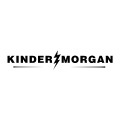
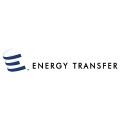

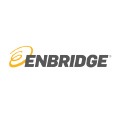

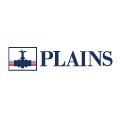
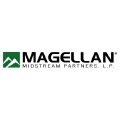
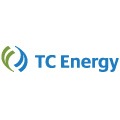
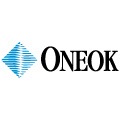
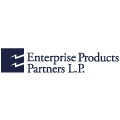
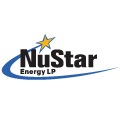
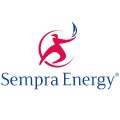

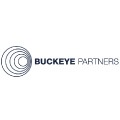
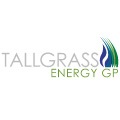
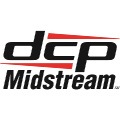
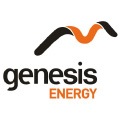
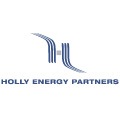
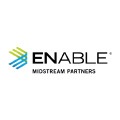
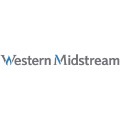
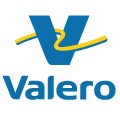
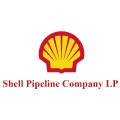
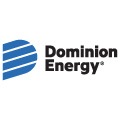
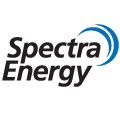
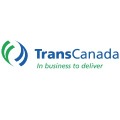

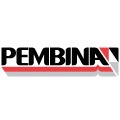
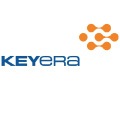
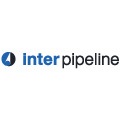
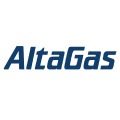
You Are Invited to Contact Us!
If you are interested in our products, services or partnering with us, please feel free to contact us by filling out this form:
or email us at sales@gaorfid.com
